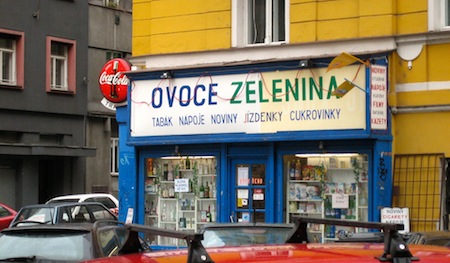While most of the attention on Egypt in the past couple of months has been over constitutional battles — president Mohammed Morsi’s decree asserting extraordinary powers and a hastily called referendum on what’s now become Egypt’s constitution — it’s easy to lose sight of the fact that the Egyptian economy has gone from bad to worse.![]()
Indeed, since the initial Tahrir Square revolts began two years ago that ultimately pushed former president Hosni Mubarak out of office, the Egyptian economy has taken a backseat to more philosophical arguments about Egypt’s future and its governance.
But Egypt’s sclerotic economy remains, perhaps, a key ingredient in determining how Egypt’s political and constitutional debate will ultimately be resolved, and it’s probably one of the most important issues that U.S. and international policymakers should be watching as they try to discern what’s happening in Egypt and in the Middle East more broadly.
So with the third round of parliamentary elections in two years set for this spring, which will certainly feature another round of debate about the weighty issues of the role of Islamism in government, the relationship between the presidency and the Egyptian army, the separation of powers in Egyptian government, and the freedoms and rights that should be granted to Egyptians, Morsi’s cabinet reshuffle over the weekend is an opportunity to remember that Egypt’s economic condition will feature prominently as well.
Morsi replaced 10 of the cabinet members (retaining the current prime minister Hisham Qandil, a former minister for of water resources and irrigation), but the most important appointment was a new Egyptian finance minister after what’s been seen as a disappointing six months for Morsi and the Egyptian economy.
Al-Mursi Al-Sayed Hegazy, a professor of economics at Alexandria University and an expert on Islamic finance, will replace Momtaz El-Saeed, who had served as Egypt’s top financial officer since December 2011 and who had served as a budget undersecretary in the finance ministry during the Mubarak era. We don’t know much more about him other than that, although any change is probably a good sign, given the horrific state of Morsi’s economic policy.
Although Hegazy doesn’t have ties to the old Mubarak regime, and he is seen as much closer to the Muslim Brotherhood (جماعة الاخوان المسلمين) than his predecessor, his selection is curious, because he’s not incredibly well-known, and certainly, not someone who would have immediately reassured international investors or the International Monetary Fund (in the way that, say, the appointment of Mohamed El-Erian, the chief executive of investment manager PIMCO would be).
At the top of Hegazy’s to-do list will be to secure a postponed IMF package for up to $4.8 billion in loans — the package was signed in November, but later postponed in December amid the political tumult surrounding the constitutional referendum.
That gives IMF managing director Christine Lagarde (pictured above in Egypt) incredible influence over the Egyptian economy, and it means that the tax increases that Morsi had been preparing before December, not to mention additional austerity measures, are all but certain to be enacted. With parliamentary elections expected in April, I’m not sure we can really depend on austerity measures being implemented too soon.
On the other hand, if the IMF deal isn’t sealed shortly, Egypt’s economy could face a meltdown that would also harm Morsi and the Brotherhood, which will contest the upcoming elections through its Freedom and Justice Party (حزب الحرية والعدال). With the country’s foreign reserves rapidly declining, Qatar provided a $2 billion loan to Egypt on Tuesday, with an additional grant of $500 million in immediate aid. Qatar has taken the most active role in keeping Egypt afloat since the end of the Mubarak era — last September, it committed $8 billion for power, iron and steel investments at the northern end of the Suez Canal and $10 billion for additional tourism infrastructure.
For Morsi, the sweet spot is securing the IMF deal ASAP, with austerity measures expected to begin very shortly after the spring elections — he gets the institutional benefits of stabilizing Egypt’s economy without taking the politically painful steps that the IMF may ultimately require under the deal.
That timing may be fine with the IMF, though, so long as Morsi commits to raising additional revenue and other structural reforms shortly after the April elections. Certainly, the IMF must realize that a deal will boost the chances for a more stable Egypt. Continue reading El-Mursi Hegazy and the Terrible, Horrible, No Good, Very Bad Egyptian Economy


